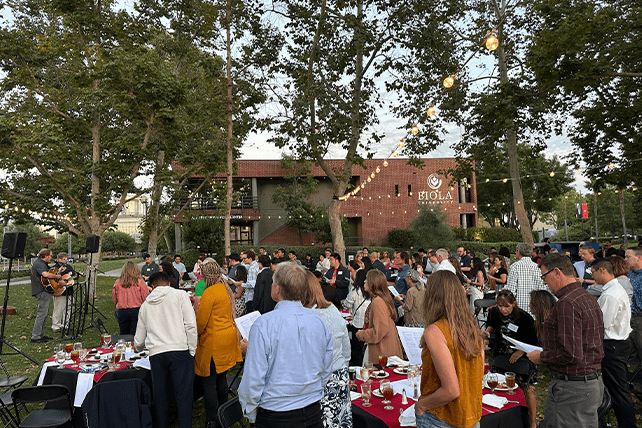Recently, I spoke to the students of Talbot School of Theology. I wanted to turn that talk into an article, so here are some thoughts for every student starting seminary this fall—with application for any stage of the seminary journey.
My own journey in theological education is a strange one. Soon after my wife Donna and I married, we moved to the inner city of Buffalo, New York, to plant a church among the urban poor. At that time, I was both a contractor renovating houses and a church planter. We began by simply knocking on doors and telling people about Jesus.
After about a year into planting a church, I realized that I did not really know what I needed to know in order to effectively lead as God had called me. So, I started my first seminary degree, driving from Buffalo to Pittsburgh, Pennsylvania, each weekend for five years. Since then, I have also earned a couple of master’s degrees and a couple of doctoral degrees and along the way learned some things about engaging education in a way that ultimately gives glory to God and is for our good.
The question we need to answer is, how should we engage our seminary education with the seriousness, but also the joy, of God’s call? Beginning seminary is an important moment—and moments like this do indeed matter. I want to exhort you, the seminary student, with five brief things as you begin your journey.
Steward
First, I want to encourage you to steward your time well. The reality is that there are some people who will steward well and there are others who will do just enough to get by. There are some who will bring the seriousness required to engage in the process, and there are others who will do just enough to get the degree. I want to encourage you, as you look at this moment, that you are going to be among some of the world’s leading scholars. At seminary, there are scholars of all different backgrounds who deeply love the Lord, deeply love the Word, and deeply love people. We all have the opportunity to faithfully steward the different gifts we are each given by the Lord.
Some of you will love spending many hours in the library, and I rejoice for I know that that will be a blessing to you. Some of you will love spending many hours learning ministry skills and applying them in a local church context, and I know the Lord will honor that with you. So, however God has wired you, steward your time to hone your gifts and passions in seminary well.
Study
Second, I encourage you to study. This is probably not a shock to you, but here’s the challenge. I want you to study with a transformative approach. If one, two, or five years from now, you finish your degree having acquired a substantive amount of knowledge, but that knowledge has become dry, rote, and meaningless to you other than the completed degree, you have not studied in the way that the Scripture says, “Study to shew thyself approved unto God, a workman that needeth not to be ashamed” (2 Tim 2:15, KJV).
Take time to study, and study with seriousness that which you are engaging together. We need you to be missionaries who have studied well, who understand the Word of God and the culture to which you go. We need you to be prepared to counsel well by understanding the situation, the struggles, and the very real mental health issues that people face in this world today. We need you to think about philosophy in ways that are deep and important.
But, if you allow it, study can not only transform you at the knowledge level. It can transform your heart and actually draw you closer to Christ. If you allow it, study can be a spiritual discipline.
Serve
Third, and significantly different from the prior, is to serve. At Wheaton College, I served as the dean of the graduate school and worked with the graduate students there, and I can almost always tell you the marker of spiritual vitality of a student. It is not by the way she or he engages their study; though that is important part of it, it is not the primary marker. The marker of spiritual vitality is not even the great professors that they had. I have observed that the marker of spiritual vitality actually is how they engage in the work of God through and in a local church while they are on their academic journey.
Do not think that going to chapel and hearing from world-class professors means that God wants you to step away from the local church. Ephesians 3:10 says that God has chosen the church to make known His manifold wisdom. The church is the tool; it is the instrument. My observation is that your spiritual vitality will be directly connected with how you engage in the local church while you are on your seminary journey.
Stay
Fourth, I want to encourage you to stay. Now, I don’t mean that in the sense that you have to be physically proximate, especially since some of you are online students. However, whether you are an on-campus or online student, I encourage you to stay engaged, because the reality is that there will be times you will want to quit.

